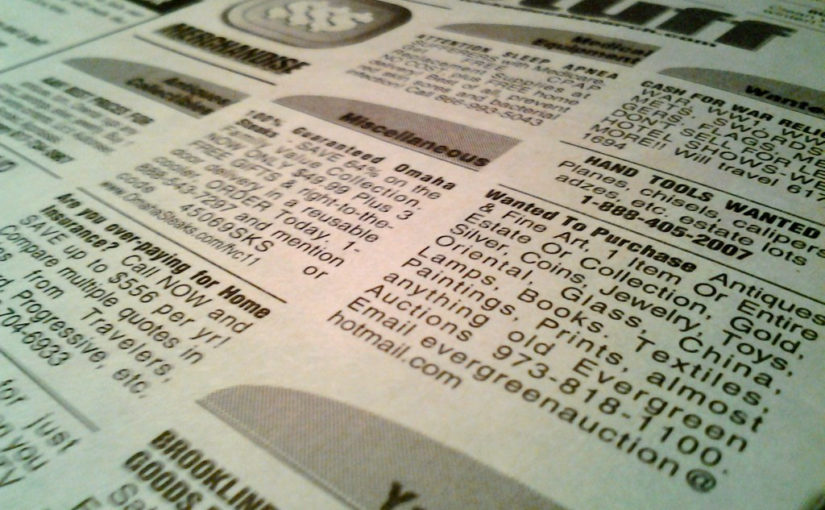My wife and I use Craigslist frequently. Not to only purchase items, but to sell our unused electronics and household items for a little bit of pocket-money. We like to see these things get another life with new people. Over the years I’ve sold quite a few items with pretty good success. Here’s a few tips for others trying to use Craigslist.
Take nice photos
You can use your phone camera and still take nice photos of the item you have for sale. There’s a few things to be sure you do when you’re setting up your shot. This doesn’t require 45 minutes and tons of effort.
Make sure you have lots of light. 90% of photography is letting as much light into the camera as you can. Taking a photo of something large, like a bed frame, indoors? Open any nearby windows and turn on the lights in the room. If you have a window open (or a big light in the room) make sure that light is behind you when you take the photo, not in the photo itself. Otherwise your item will be a silhouette against the bright light.
Keep your item in sharp focus by holding still and taking your time to line up your shot. A blurry photo is more frustrating than no photo! If there are details of the items folks need to know about (like labels or model numbers) get in close and take an extra photo. Make sure there’s nothing distracting in the background. It removes the attention to your item. Depending on how organized you are, a mess of whatever can also make you appear less trustworthy and could reveal more about your private life than you intended. Make sure folks can’t figure our your address or other personal details to protect your privacy.
Whatever you do, don’t use a stock photo. People know what the heck an iPad looks like. They what to know what the one they’re buying looks like. Also, stock images (or images taken from elsewhere on the web are often a violation of copyright and just look spammy.
Use Gud English
Please, whatever you do, put a little effort into the language of your post. One sentence is not enough. Five sentences with poor grammar and “U Wot m8?” are not really selling me on the idea of doing business with you. Also, the search on Craigslist takes into account the text of the post, not just the headline. Being descriptive helps potential buyers find your ad.
If you’re selling a manufactured good, like computers, personal electronics, cameras, home appliances – include the official description (e.g. Samsung Galaxy Tab Zero 56) and a link to the manufacture’s website for the item. There’s no need to provide a super-detailed list of every specification if you can point to an official source.
For electronics, a link to the tech specs can be helpful for those who want to geek out.
If your item has multiple spellings (Game boy and Gameboy) include the most common in the title of the post and the other somewhere in the description. This way folks searching for either spelling will see your post.
Where are you?
Make sure you are clear that you’re not going to drive across the state to sell a $30 item. Offer to meet half-way. When you do eventually meet, do so in public, during the day. Coffee shops are a good place to meet for most folks and they are seemingly everywhere. If the weather is fair many have outdoor seating so you don’t have to carry your authentic leg lamp inside. 🙂
Clear Contact Methods
Let potential buyers know the best way to get in touch. By default it will be email (CL even allows buyers to email without revealing their personal address). Realize that some folks don’t want to give out their cell number or don’t use text messaging
Follow up!
Reply to polite messages and offers. If someone is too low for your taste, a simple, “I’m asking a fair price and am not interested in going lower than $X. Thank you.” often works. Once your item is sold, take your listing down. You’ll only frustrate people who think the item is still for sale – and yourself by dealing with dead-end requests. 🙂
Photo by In 30 Minutes guides – Licensed under Creative Commons

